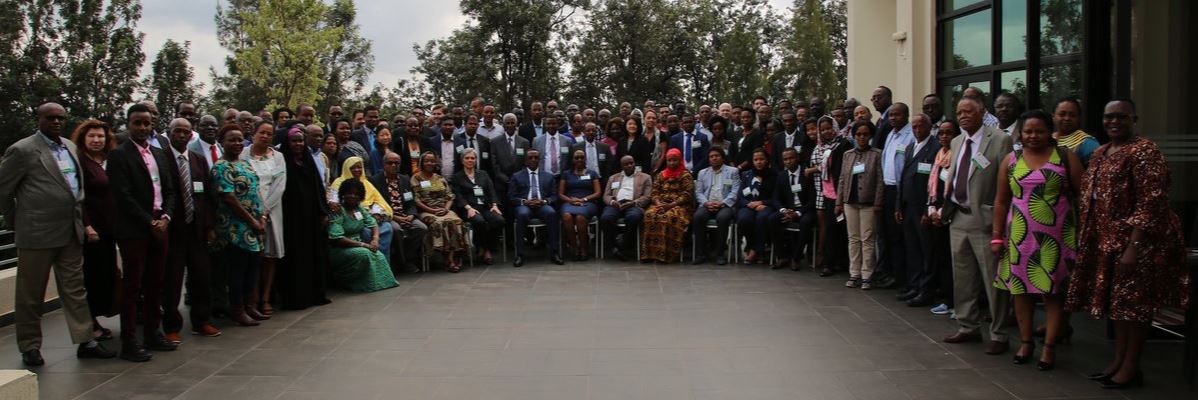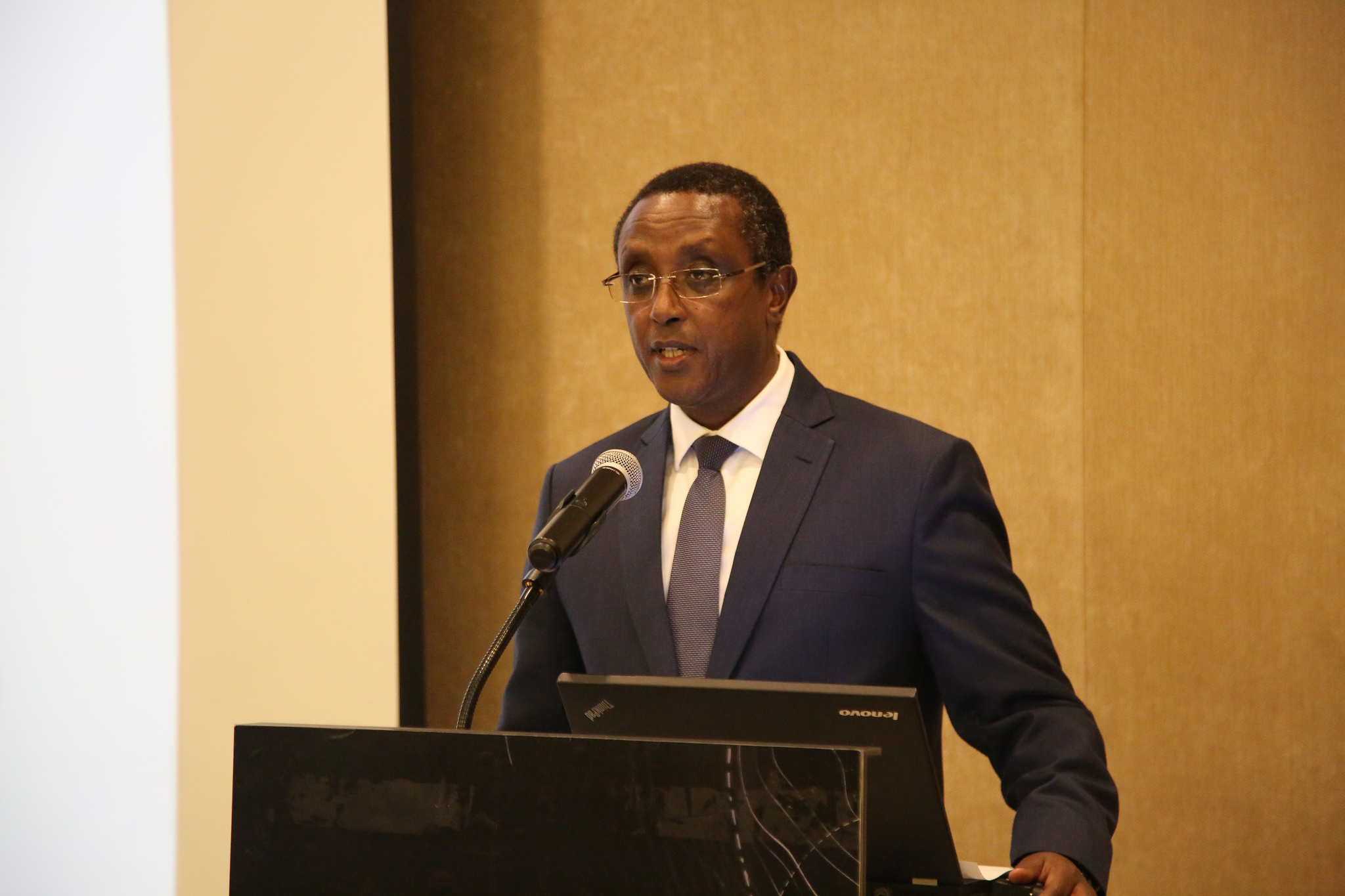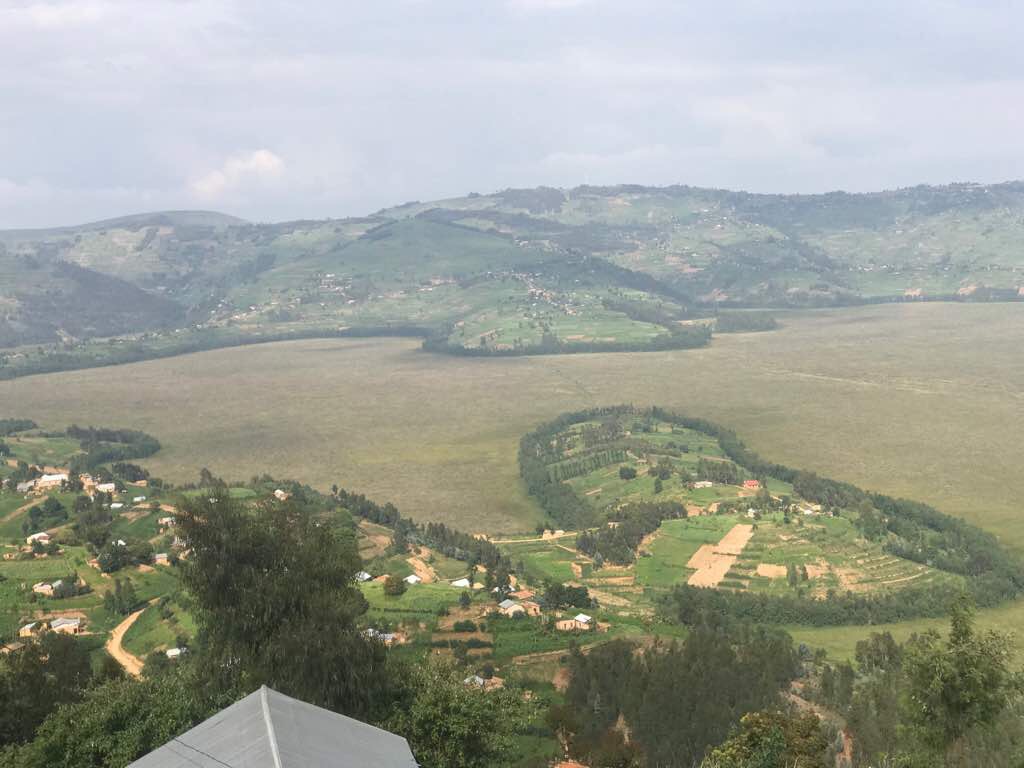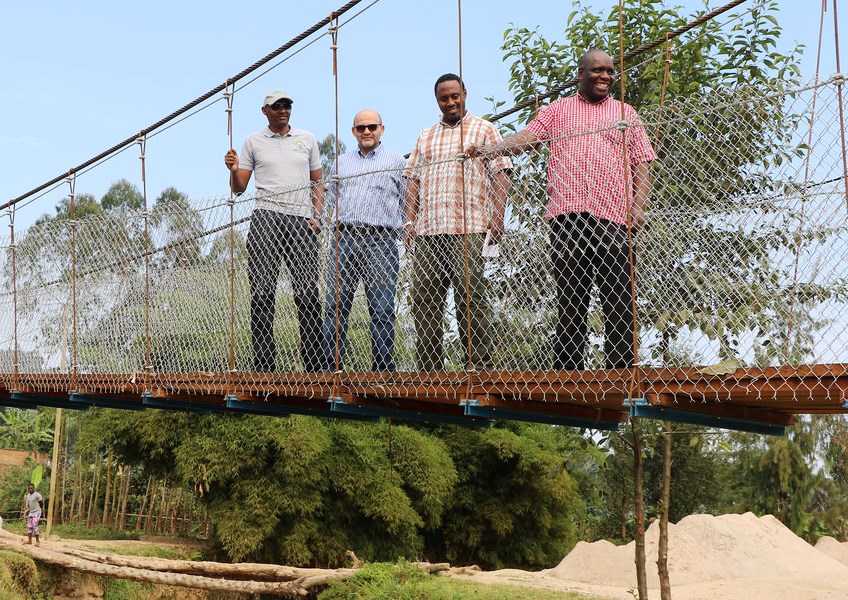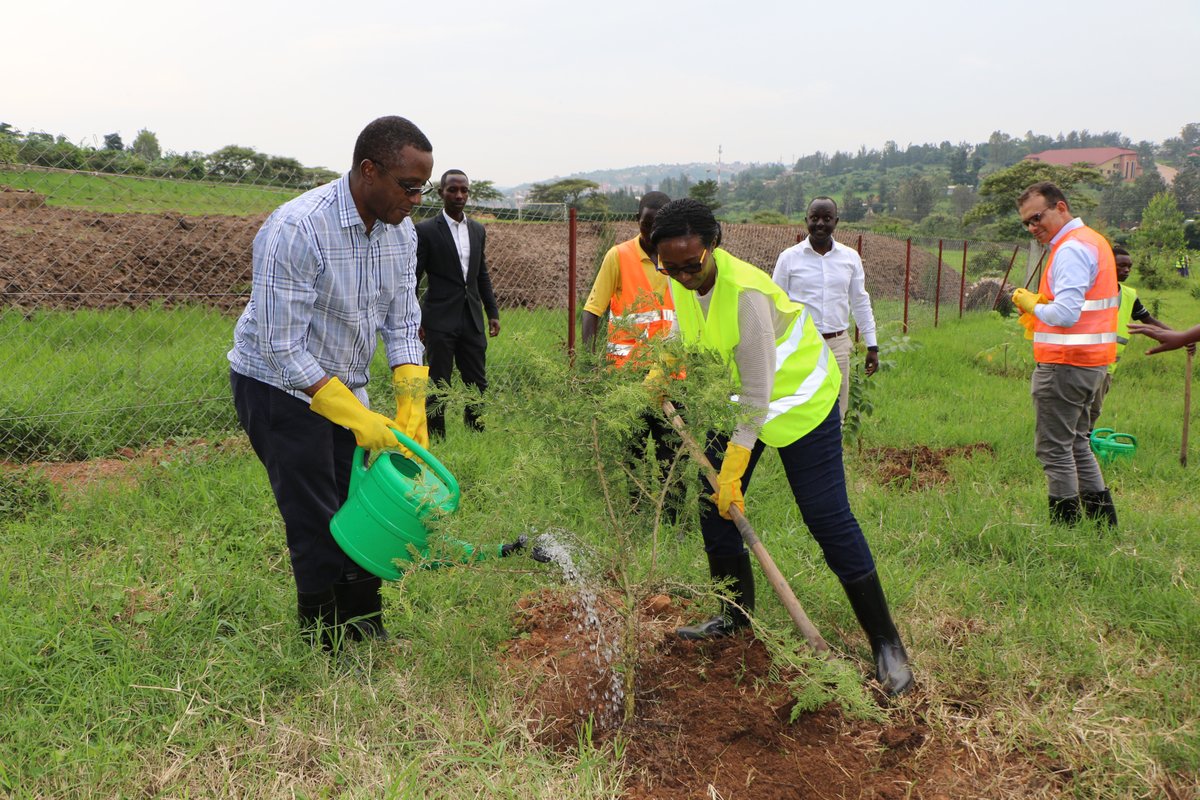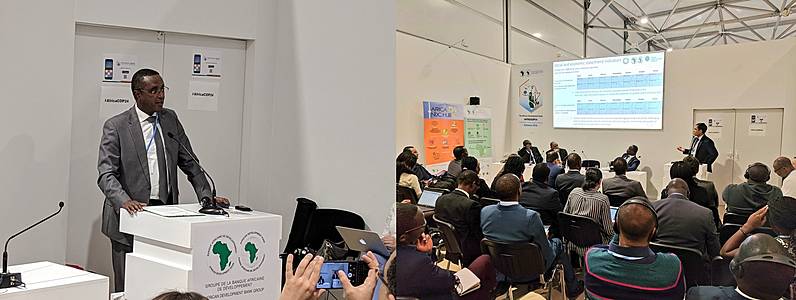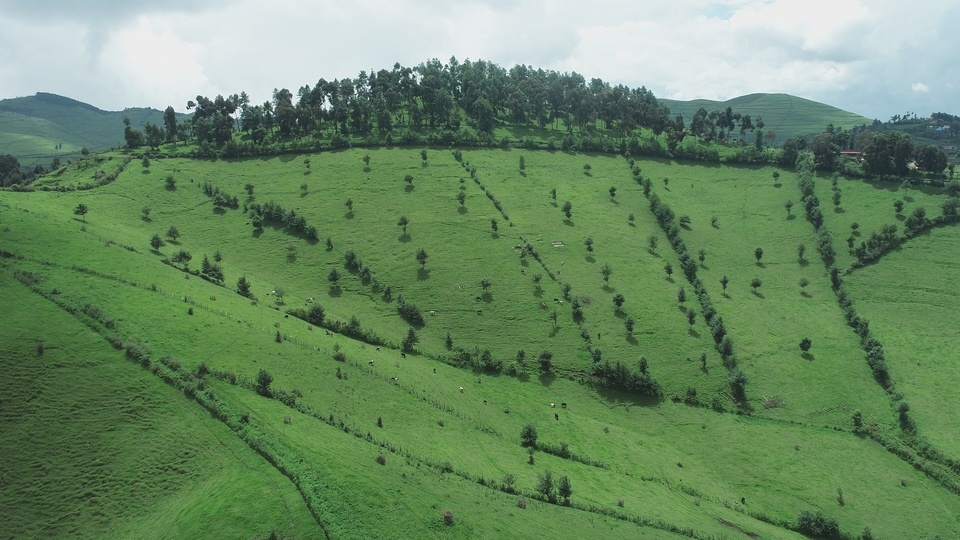
How Silvopastoralism approach is contributing to sustainable and efficient livestock production around Gishwati-Mukura National Park
A couple of decades ago, it was not that easy to find a single tree in the rangelands around Gishwati-Mukura National Park.
This was not only a problem to farmers in the area, but also a big threat to the park which they were invading in search of ethno drugs of their livestock.
Since 2015, the Government of Rwanda and partners including World Bank through Global Environment Facility launched the Landscape Approach to Forests Restauration and Conservation (LAFREC) Project which is being implemented by Rwanda Environment Management Authority (REMA).
The project aiming at demonstrating a landscape management for enhanced environmental services and climate resilience in one priority landscape of Gishwati and Mukura, resulted in a major advance in the restoration of the highly degraded Gishwati-Mukura landscape, enhancing both productive and environmental values.
Introducing silvopastoralism approaches was among the project’s components to improve livelihoods of beneficiaries around Gishwati-Mukura National Park.
Silvopasture is a tree-based livestock production system, where trees, shrubs and other vegetation planted on pasturelands provide fodder as well as other multiple benefits.
“Silvopastoralism has been an answer to the serious problems we had. First, LAFREC Project supported by providing livestock to farmers around the park. The project also made paddock for us and we now have control over grazing. You can also see trees around the rangelands, some of them will provide shelter for our livestock in dry season, while some other species (mainly Cystisus proliferus, Sesbania sesban and Leucaena leucaocephala) are fodder for our livestocks” says Kalinijabo Gatarama, a farmer in Nyabihu district.
“Milk production has increased since these paddocks were made by LAFREC Project. Most importantly the project brought water in the rangelands. Our livestock no longer travel a long distance looking for water, this contributed a lot to the increase of milk production and welfare of our livestock”
Local authorities also reaffirm that milk production has increased ever since silvopastoralism approach was introduced in Gishwati rangelands.
“I do not have exact statistics right away, but there is an increase in milk production considering the quantity of milk farmers send to Mukamira diary. They could only send around 8,000 liters of milk to the diary per day, but now they send between 18,000 and 20,000 liters to the dairy on a daily basis. We are thankful to the Government of Rwanda which brought LAFREC Project to us. Communities around the Park were suffering from lack of fresh water, but now they are benefiting from water brought to the rangelands around Gishwati-Mukura National Park” says Antoinette Mukandayisenga, Mayor of Nyabihu District.
According to several research reports, Silvopastoral systems are more adapted to changing climate and weather, as foliage production from trees and shrubs is less affected by such changes than grasses.
Moreover, unlike conventional grass-based pastures, which contribute to greenhouse gas emissions through land conversions and increased enteric methane production from livestock, silvopastoral systems contribute towards mitigation of greenhouse gases though direct sequestration of atmospheric carbon and reduction of enteric methane production.
Similarly, trees and shrubs in silvopastoral systems contribute to general ecological integrity through improvement of soil fertility, soil and water conservation and farm and pastureland productivities.
Topics
More posts
Rwanda Hosts the GEF Eastern Africa Expanded Constituency Workshop
Kigali, 12 February, 2019 – Participants from 14 East African countries are meeting in Rwanda for a four day Expanded Constituency Workshop, organized…
Global Environment Facility Expanded Constituency Workshop for Eastern Africa-Opening Remarks by Minister Biruta
Marriott Hotel, Kigali | 12 February 2019
● Francoise Clottes, Director of Strategy
● and Operations, Global Environment Facility
● Coletha Ruhamya,…
Rwanda celebrates World Wetlands Day to raise public awareness to relocate illegal activities from wetlands
Kigali, 31 January, 2019 - Rwanda celebrated World Wetlands Day on 31 January, 2019 in an event aimed to raise awareness to to relocate illegal…
Rwandans Urged to Wisely Use Wetlands as the Country Celebrates the World Wetlands Day 2019
Every year, Rwanda joins the world in commemoration of the World Wetlands Day (WWD), celebrated on 2nd February with the aim of raising public…
Restoring Gishwati-Mukura Landscape: Improving livelihoods while Promoting Tourism
The Rwanda Environment Management Authority (REMA) through Landscape Approach to Forest Restoration and Conservation (LAFREC) project is…
Activities for Transforming Nyandungu Wetland into an Eco-Tourism Park on Track
The Minister of environment Dr. Vincent Biruta has commended the good progress over the implementation of the project of turning Nyandungu wetland…
Remarks by Minister Biruta at AfDB-GGGI Study on Africa Green Growth Readiness Assessment COP24
10 December 2018
·Frank Rijsberman, Global Green Growth Institute Director General
·Amadou Hott, Vice-President, Power, Energy, Climate and Green…
Rwanda Fosters Green Investment and Sustainable Development in the First Event of the Africa Green Green Growth
A high-level policy dialogue was organised to share the progress made in the implementation of Rwanda’s Green Growth and Climate Resilience Strategy…
Africa Green Growth Forum Participants Encourage Young Students to Be Environment Champions
On the first day of the Africa Green Growth Forum, participants took part in planting trees with students from three primary schools. Themed, “Green…
